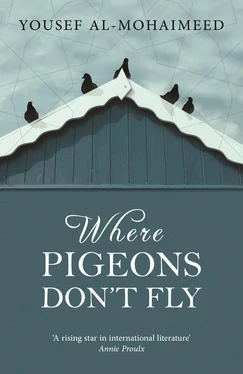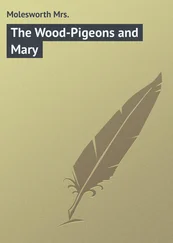Her father was troubled by her. Her mischief and insubordination made him anxious. She wasn’t like his other daughters, who were utterly calm and cold. There was a hidden fire within her. She loved people, mixed with them and made friends with all the other pupils. Everyone knew her for her rowdiness and good humour while at her sisters’ schools their fellow pupils were scarcely aware of their existence.
It was a shameful day for her father when he first introduced a telephone into their house in Suwaidi, where the family was at that time going through something of a crisis. Nobody was to answer when it rang except him, or their mother if he was away. Having taken the caller’s name and handed the receiver to one or other of his daughters, he would remain next to her, listening in. The reason for all this angst over the telephone was a mystery to the girls. Of all of them Tarfah was the most resentful of her father and mother; how she longed to leap up at the first ring and answer!
The only thing that recommended her to her father was her excellent marks at the end of each year, which made him happy. Neither did he have any worries about her gang of friends at primary school — where they were taught by a paid tutor who was known to the family and who also gave lessons to the daughters of neighbours he knew — most of whom came from villages around Riyadh such as Sudair, Huraimla and Thadiq or from the traditional city neighbourhoods of Old Shamesi, Sabala, Umm Sulaym and Jaradiya. But when he registered her at the Twenty-Sixth Middle School he became uneasy. It was an excellent government-run establishment, part of a complex that included primary, middle and secondary schools, but its pupils were utterly different to those at her fee-paying primary. They were fearless.
Tarfah gradually grew apart from her village friends and extended the circle of her acquaintances until she came to lead a small gang of her own. She was in charge, the one who performed all the most daring missions. Hearing stories of girls’ relationships with boys, she was amazed and aspired to do likewise. She would see the secondary school students, with their clothes, their sexiness and their shameless gestures, and returning home would be shocked by her mother’s refusal of her reasonable requests:
‘Mum, I want to cut my hair.’
‘Mum, all my friends are dying their hair.’
But her mother refused and refused until she grew weary and thinking of a way to shut Tarfah up, told her to ask her father, at which point Tarfah’s demands instantly ceased. That wasn’t so important, however; the difficult part was how to broach the subject of her teachers’ demands with her father because he would meet them with abuse and invective until, resolving to have done with his insults, she made her older sister Asma ask in her stead, at which he responded instantly.
Tarfah hated them all, starting with her own name, which had been given to her in memory of her grandmother. Her sisters, Asma, Amal, Ahlam and Ilham, had modern, pretty names that started with vowels, while hers stood out like a mark of shame. Why Tarfah?
‘A curse on my grandmother and my grandmother’s father!’ she would say to herself when the intoxication of her rancour reached its peak. ‘Their names all begin with A or I — soaring, confident letters — and I get a T, squat and heavy as a toad.’
‘It’s enough that you have the honour of bearing your grandmother’s name and keeping her memory alive,’ they would say and she would weep.
‘Damn her and damn her memory! Who is she, Lady Diana and no one told me?’
Despite the strong, undaunted image she presented to her sisters, Tarfah’s existence was fringed with tears. The thought of running away had often got the better of her as a teenager, but to actually take off? Where to? Not to mention the fact that the idea was insane and extremely difficult to pull off. It was perhaps her greatest fantasy.
She would be the last person in the house to go to sleep and she found herself in the grip of a strange habit: she would make her way to the front door and, opening it, would look up the street in both directions, though mostly peering to her left where the street stretched furthest with a mysterious turning at the far end.
For several nights she went on opening the door and looking left, as though waiting for someone or something, until one night she felt the sharp edge of a leather sandal strike the top of her head, then a meaty palm twist her face round and a savage kick to her body. It was her father, beating her and swearing at her, biting his tongue to muffle his voice for fear of waking the household or creating a scene.
She ran to her bed and crept beneath the blanket, stuffing her sleeve in her mouth to silence the sound of her sobs. Catching up with her he stood before her body interred in the blanket, then kicked at her foot.
‘Cut it out! Understood?’
She cut it out and fell silent and in the morning he came to wake her up as usual, with a sudden prod from his foot.
Whenever Tarfah remembered those times she would ask herself, Why was I standing there at the door? And even if his suspicions that I was waiting for someone were correct, why didn’t he ask me who it was?
Two days after the incident her father brought it up again. He hadn’t told her mother, but he impressed upon her that she had better watch out. His attentions became so oppressive that if he sat to sip his cup of coffee at sunset and Tarfah wasn’t there in front of him he would dispatch Amal or Ahlam to find her and report what she was up to.
Sometimes, she would watch their neighbour as he stood outside the door to his house, patting the head of his young son or even sitting him on his lap, though he was really too old for it. Occasionally, he would take the boy’s hand and laugh and play with him. Whenever Tarfah saw this she either laughed or felt scornful. From her parents she had learnt that patting on the head was a sin; it was a form of sexual harassment and molestation, even when it was the father himself that did it.
Now, grown up, with her second husband gone and her only daughter, Sara, sharing her bed, she still woke every morning with the feeling that any moment a foot would strike her where she lay, even now, a full ten years after her father’s death.
Her father had been so tender and jolly with his brother’s daughters. She would be consumed by jealousy to see him laughing and joking with her cousin Maha, who openly prayed that God grant him a long life instead of her own father.
‘If only God had taken you with him!’ Tarfah would mutter to herself.
— 36 —
If only God had taken me with him!
FAHD HAD REPEATED THESE words to himself many times through his endless misery in the week that followed his father’s burial beneath the soil of the Naseem Cemetery. He said them again after his mother’s marriage, against his wishes, to the uncle he couldn’t stand, and after learning of his mother’s death by torture. And, finally, he said them as he sat there in the detention cell of the Committee for the Promotion of Virtue and the Prevention of Vice, where he was merely a rich joke in the mouths of the bearded men who brought him for interrogation: the hawk-eyed man and with him a muscular fellow, cheerful and mocking, and a third individual with an uncovered head and an incipient bald patch at the front of his pate.
They sat him on a chair at the far side of the room and the hawk-eyed man scattered his belongings on the table, tipping the bag and letting them fall: his wallet, a gift from Tarfah with the Givenchy logo, a cheap pen, the 3G Nokia mobile phone, various bits of paper (mainly receipts from Maktaba), a fob in the form of a small silver elephant from which hung the keys to his Hyundai, Saeed’s flat and the inner and outer doors of their house in Ulaya, and the primitively-worked olive-stone prayer beads.
Читать дальше












